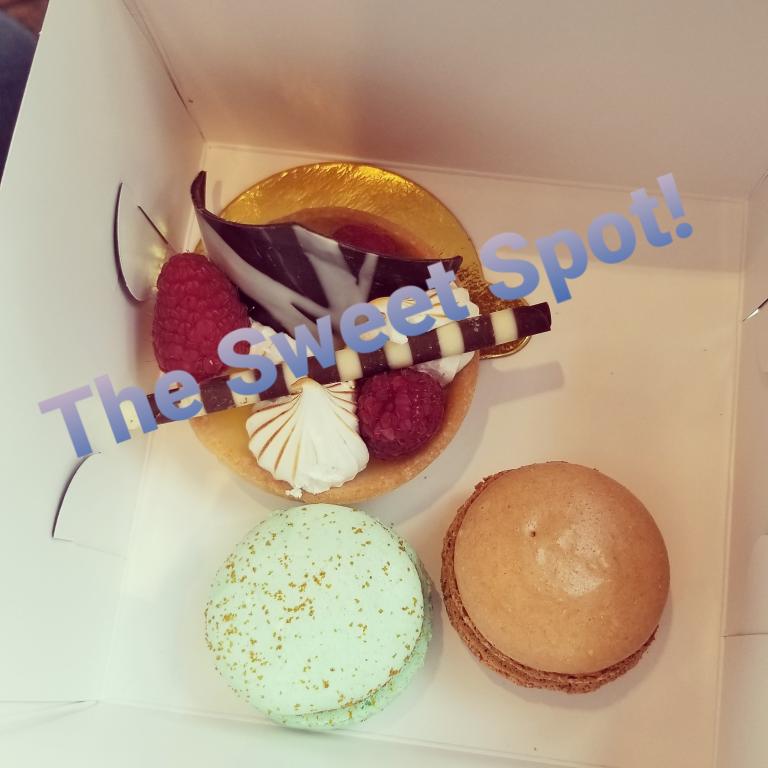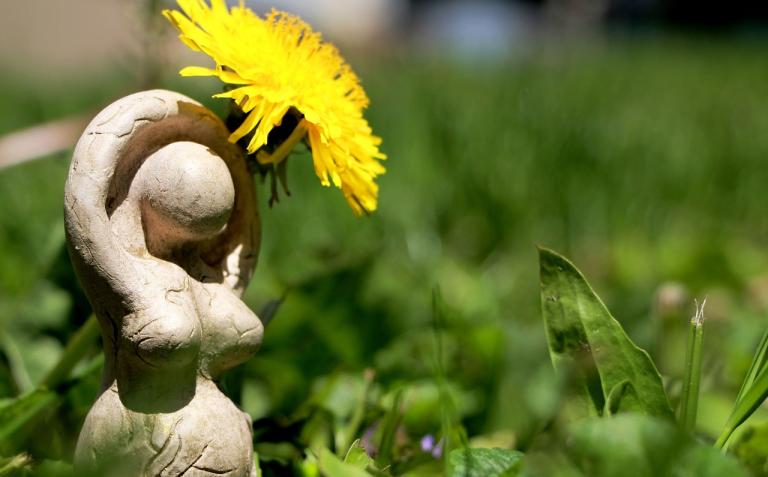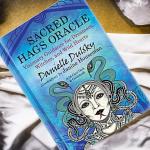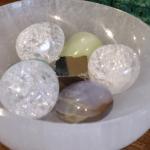Spirituality, for me, is a lot like food. I enjoy food, sharing it with others, discussing what went into it, and keeping notes on my own additions. Just like food, I don’t believe spirituality should be limited to a specialty right out of the gate. Calling oneself a green witch, hedge witch, sea witch, or any other focused area is like learning how to cook eggs only.
We see quizzes all over the internet and many seasoned witches are frequently asked about this topic. It can be hard not to eye roll when you run into this issue and yet avoid it we must. Whenever we run into someone who sincerely shows an interest in Modern Pagan practices, it is valuable that we set the standard for their first experiences. It is also my opinion that we do our best to make those first experiences feel welcoming or at least generate curiosity for the seeker.
Being the metaphorical type, I wanted to layout ways that I have encouraged people to explore the realm of Paganism further. I’ve found that relating it to a high-end buffet under a giant tent to be an easy visual and slight comic relief. Most individuals don’t like to be bogged down by heavy details and I’ve had some decent feedback from this approach. Hopefully, you will find it useful as well.

Labels Can Suck
I’m getting it out of the way immediately. I loathe online tests that tell people what kind of witch they might be. Pushing that sentiment a little further, I also dislike propagating the need to call ourselves anything like a sea witch, crystal witch, or anything like this while we are just beginning to understand Paganism. Now, if you identify with any of these labels and it comes from a place of sincere connection, that is wonderful. I might ask more about your specialization and how you came to connect deeply with whichever area you are identifying with.
However, when it comes to a beginner or even someone who has had a spiritual crisis and is reestablishing themselves, I discourage labels. Labels can suck, frankly. Just because you find relaxation by being near water doesn’t mean you’re only a sea witch. Same thing is applicable for the use of herbs. Obviously, that can be a triggering thought for some people and hear me out on this. Most of us use herbs in some way throughout our practice and I am hard pressed to find a person who doesn’t feel relaxed near water. It isn’t that one cannot identify with being a sea witch or green witch. It is that we need to acknowledge this isn’t all that person likely does.
If we take away these labels, what are we left with? We are left with an open buffet of choices and ways to practice our craft. Keep in mind that labels are useful and help us identify the world around us. What I am calling for is a fresh approach to learning before you choose to identify with a particular path. Also, to keep in mind that you are free to roam the tent of Paganism, to experience other paths. Just be sure that your curiosity includes reverence for other people, paths, and cultures. Don’t be afraid to ask other people about their experiences and to form a bond that will only lend to your own experience within Paganism.

Have You Tried The Gardner, Beinteinsson, or Nichols?
Stepping off of my above soap box, let’s get back to the goods. Whenever I am met by a curious person there are certain things I like to establish. First, I like to know what they have tried. Having an idea of where someone’s interests lay can help guide the conversation. Example: if someone has studied Druidism, specifically AODA, that lets me know where there is common ground. I know that they have some exposure to Celtic-based celebrations, likely have a reverence for the earth, they enjoy North America styles of teaching, and likely have a concept of deities.
However, if I am faced with someone who is entirely new to Paganism this cues me into questions I should be asking. Have they sampled Wicca, Traditional Witchcraft, Heathenry, or is there are particular reasons they are drawn to Paganism? I may not be well versed in every Pagan path but I am able to help guide people towards resources and that can be invaluable.
Because those who have practiced Paganism for any length of time are likely to run into questions from newcomers, it is valuable to know resources for yourself. Try not to limit your knowledge to one path and get a taste of what it is like for a Hekatean practitioner or for the numerous paths around you. Communicate with your Pagan shop owners to see if they have connections or meet-ups for Pagans who are new. Not only are you helping to create directions for others but you are diversifying your path.
Diversify Your Witch-folio
How do we diversify our witch-folios? Some examples were given above. Get involved with your local Pagan shops and see what types of classes they offer. Dive into social networking groups that are also local to your area and see if there are people who follow paths you are not familiar with. My favorite way to learn is through books and scholarly materials. Scholarly material, specifically, can give you some meaty (albeit dry at times) material.
If you’re past the point of introductory material and you want to look towards advancing cultural experiences, learn about protected cultures. I’d argue that this is paramount for any Pagan practitioner and perhaps humans in general. We should have some understanding of indigenous practices, protected practices, and why these paths may not be accessible to everyone. This conversation goes beyond race and extends to appreciation of another’s cultural history.
Being able to explain why Native American Spirituality, Voodoo, Santeria, or Dreamtime is not accessible to every person is deeply meaningful (I really cannot stress this point enough). You can liken it to protected species or land. These things can be beautiful to learn about and sometimes see, if you’re lucky enough, but they are protected for the purpose of preservation. There shouldn’t be an argument after this but oftentimes it does lead to comparative questions. Be prepared for these and know that it is perfectly acceptable to say that you’re uncertain and willing to find out more.
I also like to point out that there are some religions that welcome outsiders and encourage practice or adaptations. My own experiences in Nichiren-Shu Buddhism, Thai Forest Buddhism, and Zen Buddhism have all greatly benefited my Pagan practice. The Dalai Lama himself said, “Do not try to use what you learn from Buddhism to be a Buddhist; use it to be a better whatever-you-already-are.” Taoist teachers also encouraged blending their meditation styles with my Pagan practice. Their reasoning was simple. Wicca is a European-based religion and as such it does not have a long uninterrupted history with nature-centered practices or values that we would consider Pagan today.
Take all of this with you as you begin to expand on your practice. Recognize when you have been given an opportunity to learn from another culture, honor the decisions of that culture’s leaders, and share that wisdom with others. The buffet of Paganism need not be a one-tent situation. We can begin to look at Paganism as a campground with various tents that hold fruitful information. We only need ask and respect each other.

Do You Have a Specialty?
Now we have an idea of what interests someone may have, we gave valuable resources, and we have established boundaries around cultural appropriation. What is left after all of this? I’d call it the dessert or specialty. It is that sweet spot where you feel at home in your practice and can profess a certain amount of detailed knowledge.
As a practitioner of whatever path you choose, it is constructive to begin focusing at some point. Usually we know when we have found a path that feels like home, even if that home is only temporary. I think this is truly why I compare this portion with dessert. We’ve chosen our base flavor, let’s say Druidism. We have learned which style adds to this base, we will say OBOD’s teachings. Finally, we have studied and sampled teachings and techniques from around the globe to find the perfect toppings that bind our perfect sundae. Let’s say that is Zen Buddhist meditation, Taoist ideas of wu wei, and finally Wiccan constructs of magick. This is one of countless approaches and I hope you are picking up what I am putting down.
Let’s say that you have a singular path that really calls to you and you would prefer to specialize in practices within that religion/spirituality. This can be an excellent way to minimize overwhelming amounts of information and expand on those intuitive skills. Some Witches are outstanding with cooking and certain forms of divination (that’s me, I am some witches). Others have a proclivity for gardening and spellcasting (that’s not me so much). There are countless combinations for you to bring to the table. Your specialties and skills as a Pagan should be held in esteem no matter what combinations they are. I know it is cliché to tell you never compare yourself but clichés exist for a reason. Your unique attributes add to this world!

What Type of Witch Am I?
Right, we have run though quite a bit of information so far and I am sure you’re curious about my Pagan sundae or witch-folio. So what type of witch do I identify as? Turns out I’m just a hungry witch….. (Had to.) Jokes aside, here is how I would best identify at this point. I’m an Eclectic Wiccan who specializes in kitchen magic, understands his herbs, and can get down with most forms of meditation. I am educated in Mahayana Buddhism, Theravada Buddhism, and five schools of Vajrayana Buddhism. I often incorporate elements of these into my practice. Though the narrowest label I can place myself within is going to be Wiccan and I am comfortable with that term (nay, elated with it!). I’m not afraid of labels in the right context.
As I mentioned over and over; if you are new to Witchcraft or Paganism in general, sample the buffet. Don’t be afraid to try Druidism, Reconstructionist movements, Heathenry, Wicca, Traditional Witchcraft, or anything in this giant tent of Paganism. As you sample lessons from each area that may interest you, do so respectfully, and offer thanks for the lessons you’ve learned. Even if you aren’t new to Paganism or Witchcraft, don’t be afraid to learn!
Patheos has several outstanding writers that offer tastes of various practices and paths. Additionally, we have countless books, vlogs, and websites that offer assistance in learning new methods. Personally, I would be lost without my books to reference and I’d like to share some of my favorites with you.

Recommended Books:
- The Path of Paganism: An Experience-Based Guide to Modern Pagan Practice – John Beckett
- Traditional Wicca: A Seeker’s Guide – Thorn Mooney
- The Path of Druidry: Walking the Ancient Green Way – Penny Billington
- The Crooked Path: An Introduction to Traditional Witchcraft – Kelden
- Weave the Liminal: Living Modern Traditional Witchcraft – Laura Tempest Zakroff
- Transformative Witchcraft: The Greater Mysteries – Jason Mankey
- Buckland’s Book of Saxon Witchcraft – Raymond Buckland
- Witchcraft for Tomorrow – Doreen Valiente


















